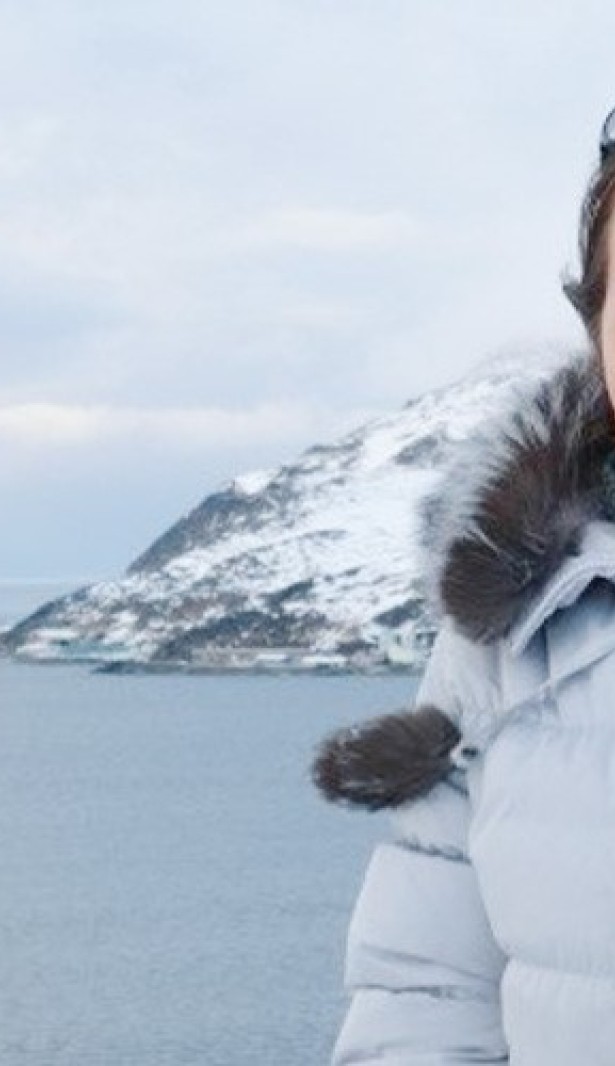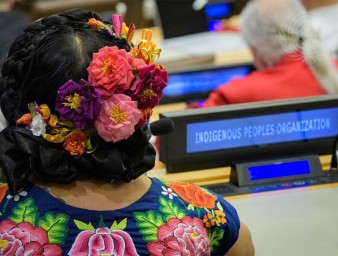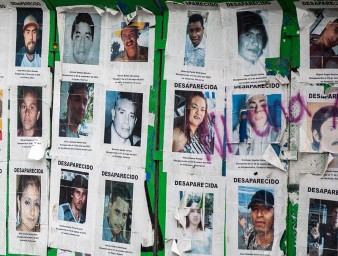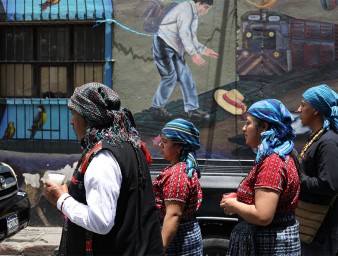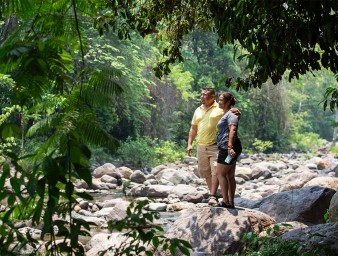Galina Edin, indigenous rights activist: “I feel responsible for my people”
07 August 2020
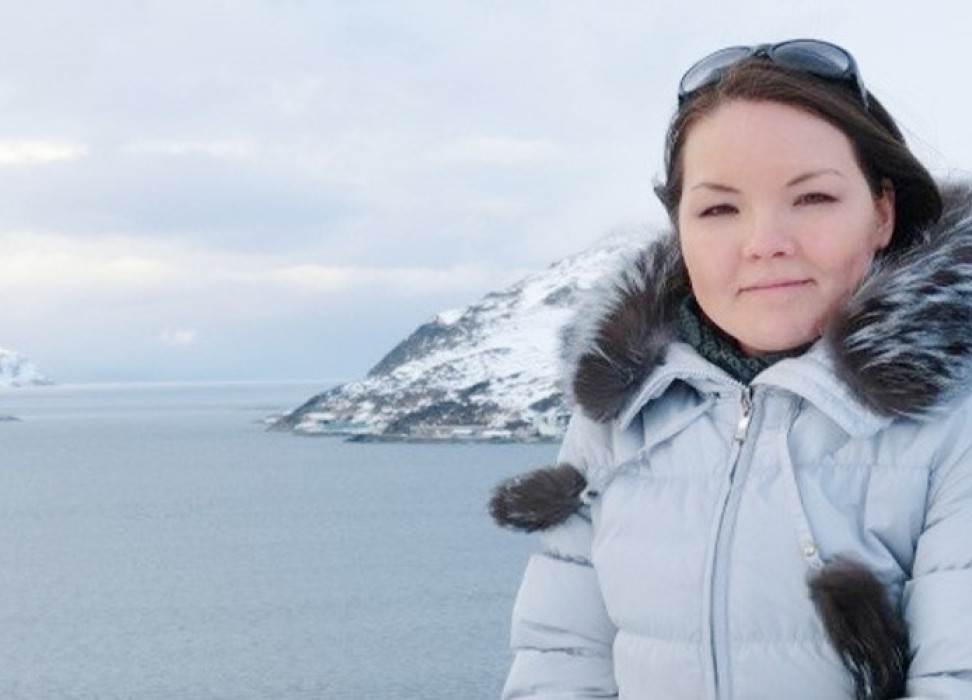
Galina Edin is a Russian journalist, broadcaster and social activist and a member of the mansi indigenous peoples from the Khanty-Mansi (Yugra) region. She is one of the co-founders and an active member of the community organization which helps Russian indigenous youth adapt to urban life when they come to cities, seeking education.
The Russian Federation is one of the most ethnically diverse countries in the world, and includes over 160 distinct peoples. Russian federal legislation protects the "small-numbered indigenous peoples of Russia," defined as those who live in territories traditionally inhabited by their ancestors and who maintain a traditional way of life and economic activity. There are officially 46 such 'small-numbered' groups and their size varies from fewer than 300 to more than 40,000.
These groups have been able to preserve their unique and distinctive identities, cultures, languages and traditions. However, deep-rooted problems remain and according to various sources, indigenous peoples generally have worse human development indicators than other parts of the population.
As a journalist, Galina has filmed numerous documentaries about indigenous peoples in the north of Russia. Her latest film focuses on how climate change is affecting indigenous lives, traditions, culture and livelihoods.
Previously, Galina took part in OHCHR's' Indigenous Fellowship Programme, which provides training to strengthen the expertise of indigenous human rights defenders.
Galina describes life as an indigenous woman in the Russian Federation, and the main human rights concerns she is trying to address for her people.
What was life like for you growing up as an indigenous person in Russia? Did you enjoy the same rights as others? Did you face any discrimination?
My life was not much different to that of other Russians, and I felt I had the same rights. Growing up, I did not feel any negative attitude from other people. When I left for the city of Khanty-Mansiysk and became a student, we, indigenous peoples, got greater attention. As students, we received state support such as scholarships and allowances to buy clothes, stationery and other things. Now, such benefits are available only for students from low-income Russian families.
However, when I started my career as a journalist, I encountered bias. Some people would scowl, or use certain gestures and words to imply that somehow I had a lower status. It seems to me there is a kind of resentment that indigenous peoples receive benefits and subsidies, and have privileges that others do not.
What is the situation today for indigenous peoples in Russia?
It varies depending on the region. For example, some of the northwestern regions are financially stable, and there are well-funded state programmes to support socioeconomic indigenous development.
In underfunded regions, people are worse-off, and indigenous peoples have to be self-sufficient in order to survive. In some places, traditional livelihoods such as fishing, herding, hunting, and gathering have been strongly affected, with people deprived of access to fishing and hunting areas.
Despite the efforts of some authorities, violations of indigenous rights and discrimination against indigenous peoples in Russia still exist. A federal law on indigenous rights was recently passed, but there is a risk that it will divide indigenous peoples into those who live in urban zones and those who live in traditional areas. This will not only intensify competition and hatred between indigenous peoples themselves, but will also worsen the attitude of others.
How did your career path lead you to be a journalist and social activist?
As a child, I did not plan to be a journalist. I dreamt about learning different languages and working in tourism. I became a journalist by chance, and I do not regret it - I have found my place in life. Being a journalist has led me to social work. Through working in the media, I was able to see that not all indigenous peoples live in dignity. Many, especially youth, do not have a university degree. This social vulnerability of our people has affected many of my life choices.
What challenges - if any - do you face as an indigenous woman working as a journalist in Russia?
As a female journalist, I have never encountered any issues. But as an indigenous journalist, I have. There were attempts to prevent me from attending events and meetings organized by regional executive authorities on indigenous issues. Also, the content I prepared for a TV program on indigenous issues was rejected several times.
Your latest film is on climate change – how do you describe how climate change is affecting indigenous peoples in the north of the Russian Federation?
Climate change and rapid warming in the north have had a huge impact on the traditional way of life of my people, and we are deeply concerned about it. Winters are very warm now. For half of the winter period, the road leading to the settlement is covered in snow, limiting access to food and healthcare
Last year was especially difficult for the residents of my settlement. Winter was warm, and it snowed a lot. There was snow in the mountains until June. It then started melting, leading to high water levels during the whole summer. As a result, there was lack of fodder for the cattle, and not enough fish and wild plants for people to eat.
What motivates you to keep doing this work?
I feel responsible for my people, for my future, and for the future of my children. Even if I live in a city, I feel that without family, land and home I do not really feel human. Unfortunately, for indigenous youth of the north, including myself, the urban environment is depressing. We are predisposed to be surrounded by nature, and find it very difficult to adapt to city life. There is a high suicide rate among indigenous youth who move to cities and then return to their homes. They are unable to find their place when they go back.
How has the UN Human Rights Indigenous Fellowship Programme helped you in your work?
As a journalist, I am well aware of the issues faced by the indigenous peoples living in remote villages and nomad camps, and they cannot always be solved just by raising awareness in the media. People need real legal aid.
The programme gave me a unique opportunity to acquire new knowledge on national and international law, and on existing human rights system and mechanisms, including those related to indigenous peoples' rights. We are now better prepared to contribute to our organizations and communities in the protection and promotion of indigenous rights.
Why is it important for you to stand up for human rights?
I believe that every human being has the right to life in dignity, regardless of race, religion, or social group. We should ask ourselves what future we want for our children and ourselves. We want it to be bright, don't we? I would like that among indigenous communities, there are more human rights defenders and activists who don't just talk but act, so that their fellow human beings can live in dignity.
Disclaimer: The views, information and opinions expressed in this article are those of the persons featured in the story and do not necessarily reflect the official policy or position of the Office of the UN High Commissioner for Human Rights.
7 August 2020
